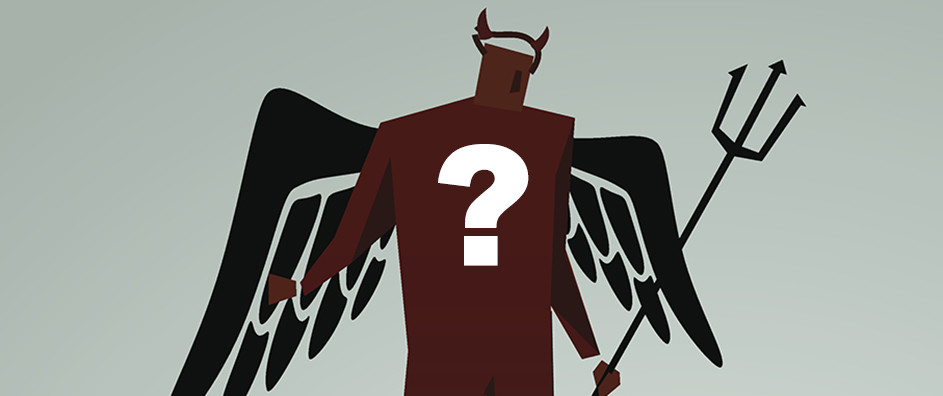Throughout human history, the concept of the devil has captivated the imagination, evoking curiosity, fear, and contemplation. Within the framework of Bahá’í teachings, the question “Do you know who the devil is?” transcends mere theological inquiry and unveils a rich tapestry of symbolic significance and profound psychological implications. The Bahá’í Faith presents a nuanced perspective on the notion of evil, challenging traditional dichotomies and inviting adherents to explore the subtleties that underpin moral duality.
At its core, the exploration of the devil as a symbol or a tangible reality invites a comprehensive examination of the fundamental nature of human existence. In the Bahá’í understanding, the devil is not an external entity lurking in the shadows, but rather a representation of the inner struggles faced by individuals. This perspective aligns with the belief that every person possesses the capacity for both good and evil, suggesting that the true devil resides within. Thus, the inquiry into the identity of the devil transforms into a profound journey of self-discovery.
Theological interpretations often coalesce around the idea of the devil as a metaphor for human weaknesses, desires, and the propensity for wrongdoing. In Bahá’í thought, these inclinations are viewed as manifestations of the lower nature of humanity—the “nafs”—which can lead individuals astray. This internalization of evil compels followers to engage in a transformative process of self-examination and conscious decision-making to align themselves with their higher nature, often referred to as the “spiritual self.”
Fascination with the figure of the devil can be traced to deep-seated psychological archetypes that pervade diverse cultures and religious traditions. The devil embodies the tension between light and darkness, order and chaos, good and evil. This duality resonates on both a collective and individual level, prompting individuals to confront their inherent contradictions. Bahá’í teachings assert that understanding this duality is essential for personal growth, urging individuals to transcend their base instincts and cultivate virtues such as love, compassion, and justice.
A crucial aspect of the Bahá’í perspective is its emphasis on unity. The teachings affirm that all humanity is connected, which implies that the presence of evil in one individual affects the collective whole. This communal dimension of moral responsibility underscores the importance of mutual support in the pursuit of virtue. When one grapples with personal demons—whether they be anger, jealousy, or pride—they are not only influencing their own spiritual trajectory but also contributing to the larger tapestry of human existence.
The debate over the existence of the devil as a literal being versus a symbolic representation is imbued with philosophical implications. While some religions espouse a tangible presence of evil manifested in the form of the devil, Bahá’í teachings diminish the significance of an external antagonist. Instead, the focus is placed on the realization that mankind’s greatest adversary often comes from within. By embracing this understanding, adherents are encouraged to adopt a proactive stance against their own vices and to actively cultivate virtues that counteract the darker aspects of their nature.
The doubts and fears that people project onto the concept of the devil can be seen as reflections of their own insecurities. The devil, as constructed by societal narratives, embodies the fears of the unknown and the catastrophic consequences of moral failing. In analyzing these fears through a Bahá’í lens, one discovers that they stem from a misunderstanding of the true nature of humanity. The teachings promote the idea that the human experience is inherently filled with both trials and triumphs, and that adversity serves as a crucible for personal and spiritual growth.
Furthermore, the notion of the devil as a mere illusion or distraction aligns with the Bahá’í belief in the importance of divine guidance. In this worldview, the unity of God transcends polarities, and understanding one’s relationship with the divine can assist individuals in overcoming their lower instincts. When individuals seek to develop a connection with the divine, they are better equipped to recognize and combat the influences of their inner struggles.
The exploration of ethics and morality in a Bahá’í context invites practitioners to engage in the arduous task of self-assessment. Acknowledging the existence of the devil within allows for the recognition of one’s flaws and the pursuit of self-improvement. This dynamic process reinvigorates the notion that spiritual evolution is an ongoing journey, marked by both victories and setbacks. The striving for personal excellence is not a solitary endeavor; it is enriched by the communal bonds nurtured through collective commitment to virtue and justice.
In summation, the inquiry into “Who the devil is?” within Bahá’í teachings transcends simplistic dichotomies and invites a richer understanding of human morality. The devil, whether viewed as a symbol or reality, serves as a catalyst for deeper introspection and personal transformation. Amidst the complexities of life, Bahá’í teachings encourage individuals to acknowledge, confront, and ultimately transcend their baser instincts. The pursuit of virtue, love, and unity stands as the antidote to the darker aspects of human existence, illuminating the path toward spiritual awakening and collective harmony.
As individuals navigate their existential landscapes, they are reminded that the true power lies not in the fear of a separate being embodying evil but in the conscious choice to embrace their spiritual essence and ascend toward the light of higher consciousness.
